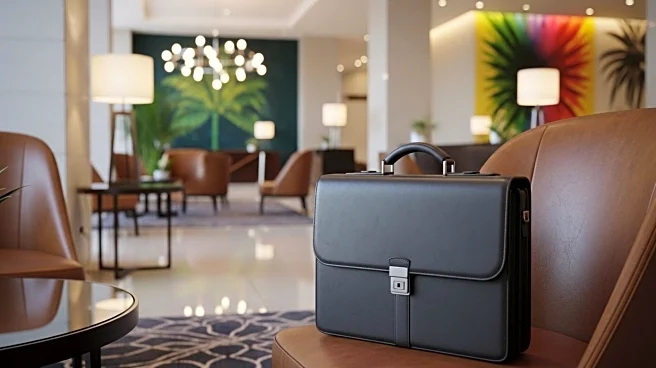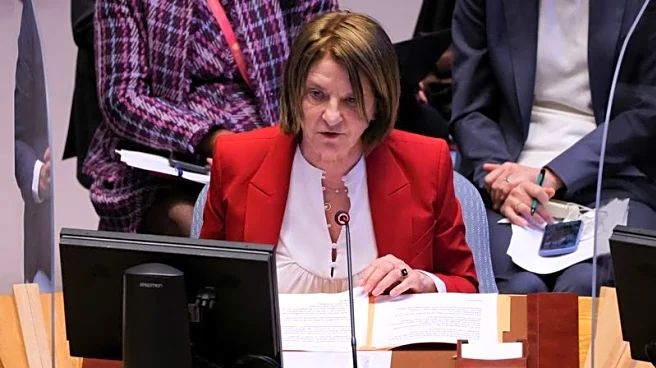What's Happening?
Brazil is emerging as a significant player in the global business tourism sector, ranking 15th worldwide for hosting international gatherings according to the International Congress and Convention Association (ICCA). In 2024, Brazil saw a 50% increase in event volume, positioning itself as the third leading country in the Americas for such events, following the United States and Canada. The country is leveraging its robust infrastructure, cultural diversity, and natural landscapes to attract business travelers. Upcoming events like the SAHIC hotel investment forum and the IATA Annual General Meeting in 2026 are expected to further enhance Brazil's reputation in the Meetings, Incentives, Conferences, and Exhibitions (MICE) market.
Why It's Important?
The growth in Brazil's business tourism sector is significant for its economy, contributing to international tourism revenue and supporting local businesses such as hotels and convention centers. This expansion aids job creation and fosters innovation. Brazil's unique blend of urban sophistication and natural beauty, along with its cultural offerings, makes it an attractive destination for business events. The country's commitment to sustainable tourism aligns with global trends, appealing to environmentally conscious travelers and event planners.
What's Next?
Brazil is set to host several major events in 2026, including the SAHIC hotel investment forum, Agrishow agricultural trade fair, and the International AIDS Conference. These events are expected to draw significant international attention and investment, further solidifying Brazil's role in the global MICE landscape. Improved air connectivity and modern facilities will enhance accessibility, while the country's cultural diversity will continue to attract international participants.
Beyond the Headlines
Brazil's focus on sustainable tourism is noteworthy, as it aligns with global environmental priorities. Initiatives like the Brasil Incentive Showcase highlight eco-friendly tourism options, such as exploring the Pantanal wetlands. This approach not only attracts environmentally conscious travelers but also positions Brazil as a leader in sustainable tourism practices.










